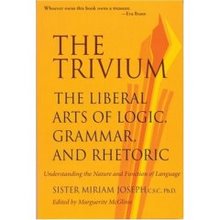Looking Back to Move Forward
Al-Azhar University - 1000 years of Scholarship
 by: Foundation for Science Technology and Civilisation. Info@fstc.co.uk
by: Foundation for Science Technology and Civilisation. Info@fstc.co.uk
Al-Azhar is today the most important religious university in the Muslim world with as many as 90,000 students studying there at any one time. It is arguably the oldest university in the world
When Jawhar the Sicilian, commander of the troops sent by the Fatimid Caliph Almuiz to conquer Egypt, founded Cairo in 358 AH / 969 AD he built Al-Azhar originally as a mosque. The mosque was completed within two years and opened for it's first prayers on 7th Ramadan 361 A.H/ June 22, 972 AD. Historians differ as to how the mosque got its name. Some hold that it is called as such because it was surrounded by flourishing mansions at the time when Cairo was founded. Others believe that it was named after "Fatima Al-Zahraa" the daughter of Prophet Mohammed (peace and blessing be upon him) to glorify her name. This last explanation sounds the most likely as the Fatimids named themselves after her.
Al-Azhar University is a natural expansion of the great mosque of Al-Azhar. It is the oldest and most celebrated of all Islamic academic institutions and Universities all over the world without exception. For over one thousand years Al-Azhar has produced thousands of eminent scholars, distinguished educationalists, preserving Islamic heritage and strengthening Islamic identity.
During the Fatimid times (972 - 1171), Al-Azhar was a miniature University whose objective was to spread the Ismaili-Shiite teachings in Egypt. Its position was thus important to the ruling Fatimid dynasty, but had little importance to the rest of the Muslim world who had its eyes focused on Baghdad as the center of Islamic knoweldge. Through the schools of Baghdad Muslims got to know scholars of the calibre of Abu Hamid al-Ghazali, Abu Ishaq al-Isfara'ini, Al-Juwaini and Abu-Bakr Al-Baqilani. For the majority of Muslims Al-Azhar was not as famous as the schools of Baghdad. In addition, the Fatimids were looked upon by the majority of Muslims as rulers belonging to a heretic sect. This view is obvious through the declaration made in Baghdad by many Muslim scholars denouncing the Fatimids. The declaration included prominent Sunni scholars like Abu Ishaq al-Isfara'ini in addition to prominent Shii scholars like al-Sharif al-Murtada. This stand regarding the Fatimids hampered Al-Azhar from taking a prominent position in the Islamic world during the time of the Fatimids.
When the Ayyubids assumed power, Al-Azhar was converted to the Sunni (mainstream) Islamic teachings. But with the establishment of the Ayyubid schools in Egypt Al-Azhar's position in the Islamic world became of little importance. It was considered just another school among the many schools in Egypt, Baghdad, Syria and Andalusia.


